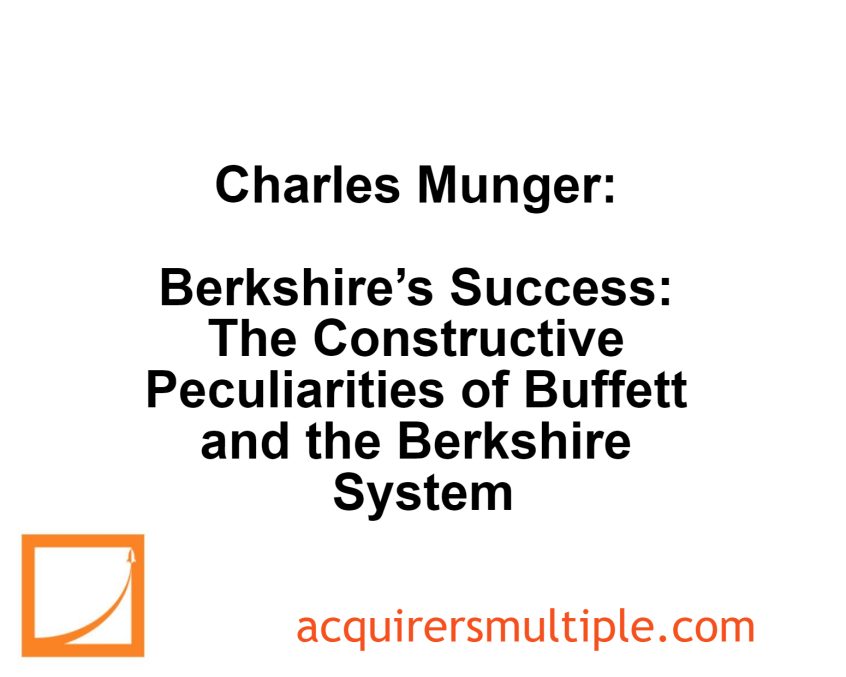In his Special Letter titled Vice Chairman’s Thoughts – Past and Future, Charles Munger discusses Berkshire’s success, emphasizing that while luck played a role, the heavy lifting was done by the constructive peculiarities of Buffett and the Berkshire system, along with the unwavering devotion of shareholders. These factors combined to create a virtuous cycle of success, attracting more subsidiaries and better CEOs to the company. Here’s an excerpt from the letter:
Why did Berkshire under Buffett do so well?
Only four large factors occur to me:
(1) The constructive peculiarities of Buffett,
(2) The constructive peculiarities of the Berkshire system,
(3) Good luck, and
(4) The weirdly intense, contagious devotion of some shareholders and other admirers, including some in the
press.
I believe all four factors were present and helpful. But the heavy freight was carried by the constructive peculiarities, the weird devotion, and their interactions.
In particular, Buffett’s decision to limit his activities to a few kinds and to maximize his attention to them, and to keep doing so for 50 years, was a lollapalooza. Buffett succeeded for the same reason Roger Federer became good at tennis.
Buffett was, in effect, using the winning method of the famous basketball coach, John Wooden, who won most regularly after he had learned to assign virtually all playing time to his seven best players. That way, opponents always faced his best players, instead of his second best. And, with the extra playing time, the best players improved more than was normal.
And Buffett much out-Woodened Wooden, because in his case the exercise of skill was concentrated in one person, not seven, and his skill improved and improved as he got older and older during 50 years, instead of deteriorating like the skill of a basketball player does.
Moreover, by concentrating so much power and authority in the often-long-serving CEOs of important subsidiaries, Buffett was also creating strong Wooden-type effects there. And such effects enhanced the skills of the CEOs and the achievements of the subsidiaries.
Then, as the Berkshire system bestowed much-desired autonomy on many subsidiaries and their CEOs, and Berkshire became successful and well known, these outcomes attracted both more and better subsidiaries into Berkshire, and better CEOs as well.
And the better subsidiaries and CEOs then required less attention from headquarters, creating what is often called a “virtuous circle.”
You can read the entire letter here:
Charles Munger – Vice Chairman’s Thoughts – Past and Future
For all the latest news and podcasts, join our free newsletter here.
Don’t forget to check out our FREE Large Cap 1000 – Stock Screener, here at The Acquirer’s Multiple:



